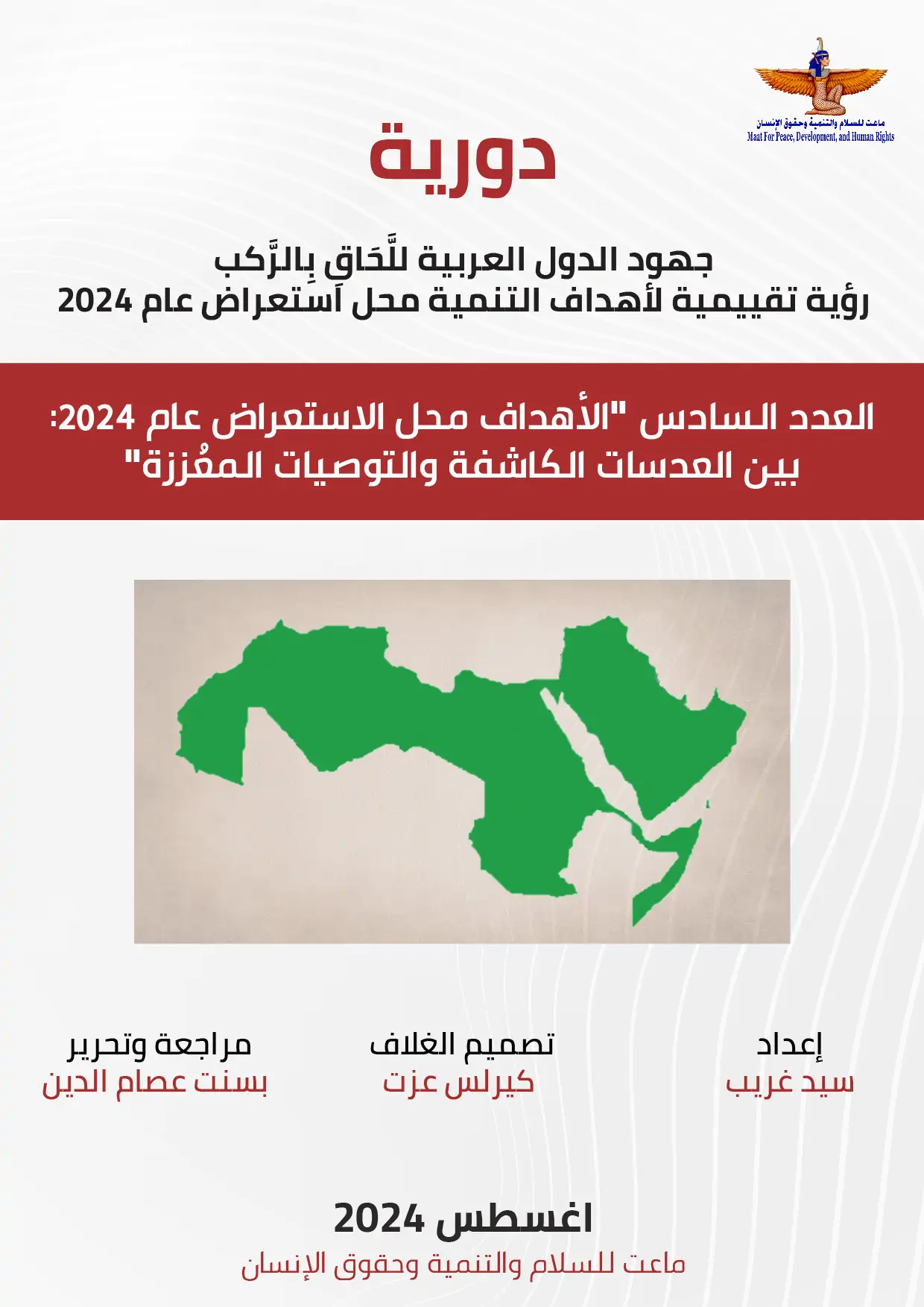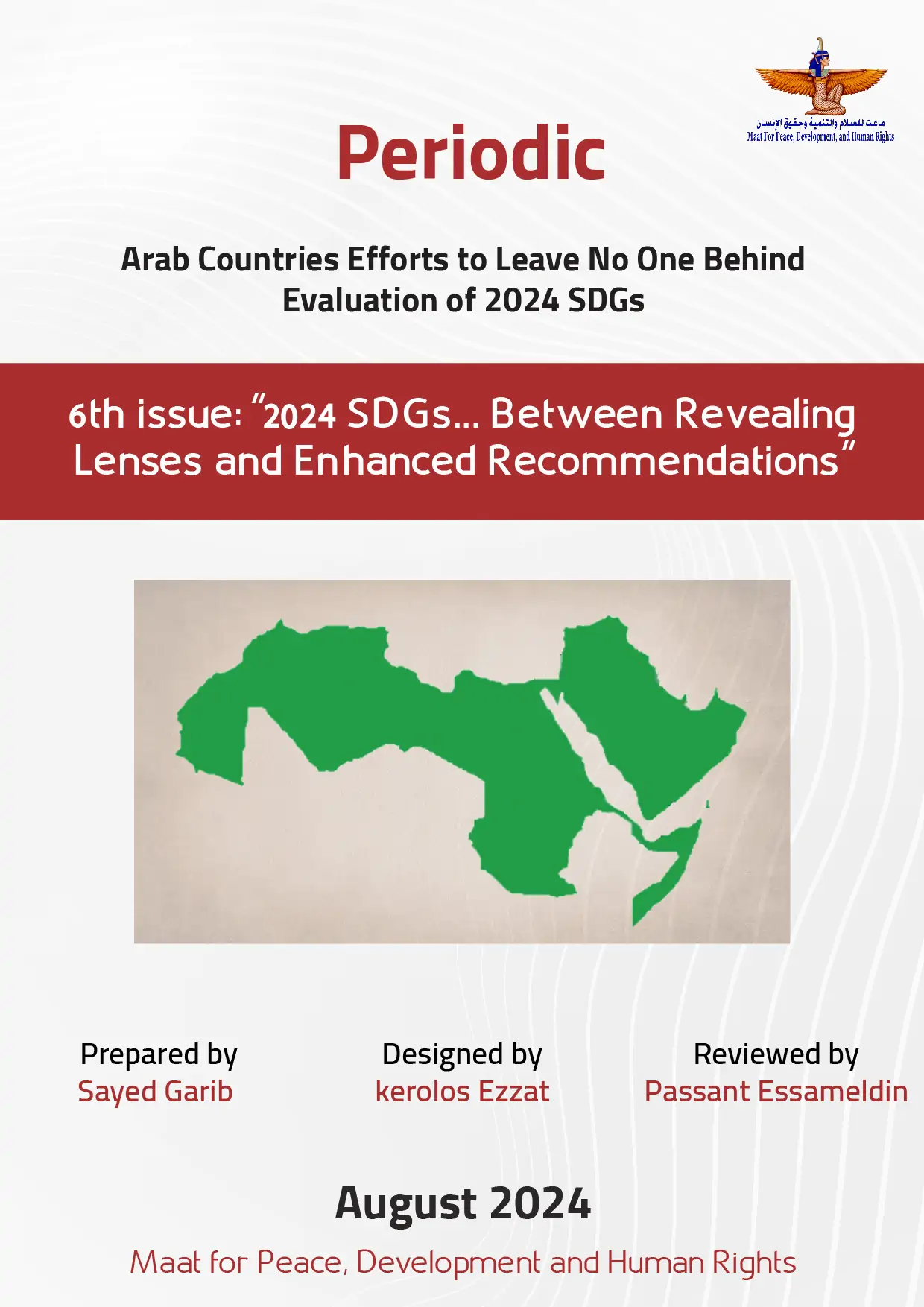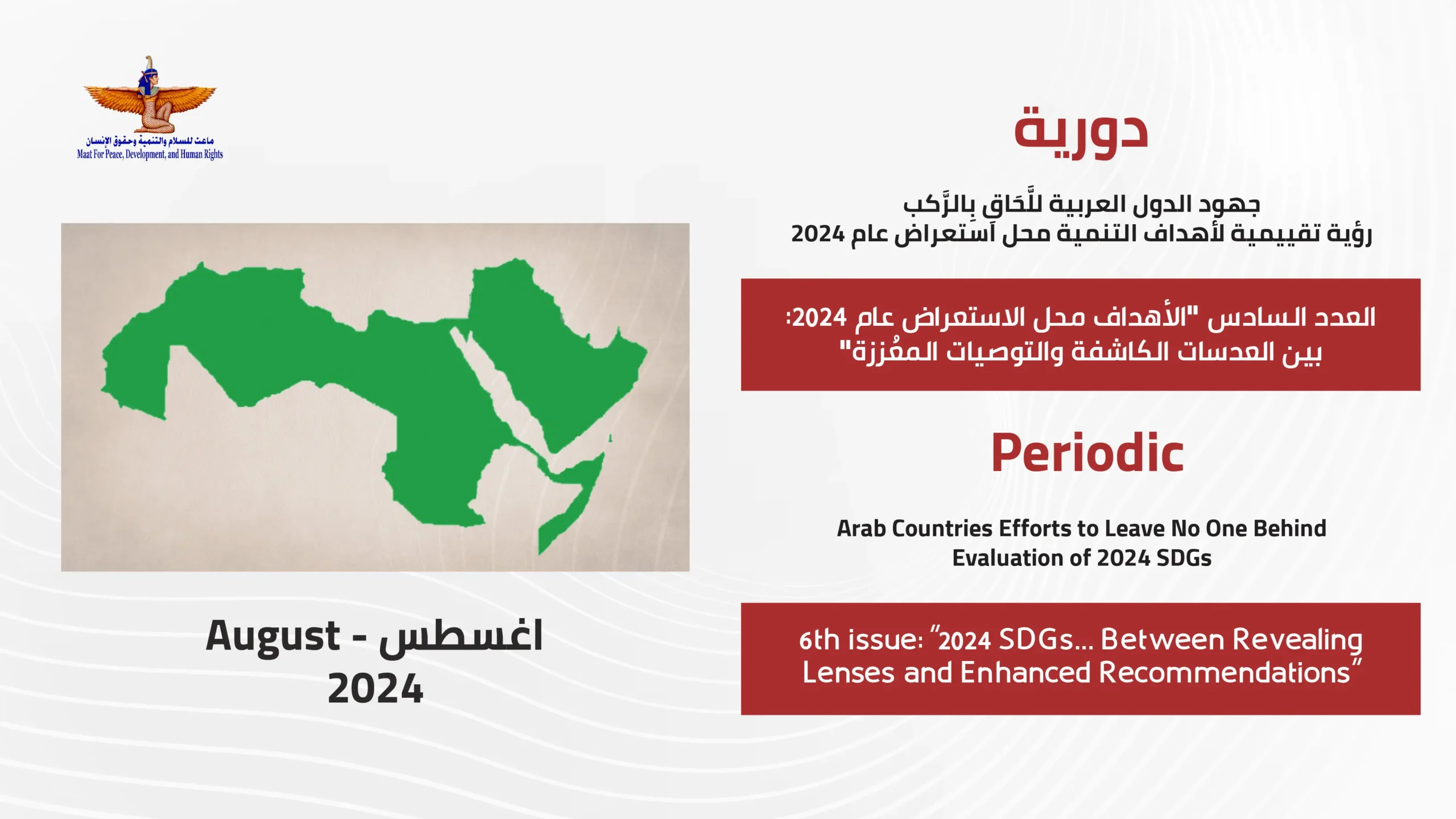Maat Concludes its Research Periodical to Evaluate Sustainable Development Goals in Arab Countries
Okeil: There is no development without financing, and 12 Arab countries suffer from a financing gap estimated at $660 billion annually
Gharib: Opportunities for private sector and civil society to participate must be expanded to carry out their social and solidarity roles
Maat for Peace, Development and Human Rights has concluded its development research periodical entitled "Arab Countries Efforts to Leave No One Behind: Evaluation of 2024 SDGs." The periodical included six consecutive issues that dealt with the goals under review in 2024 at United Nations High-Level Policy Forum on Sustainable Development, namely SDGs 1, 2, 13, 16, and 17. Each issue addressed one of these five development goals, monitoring and evaluating progress in the Arab region, especially in light of international and regional variables.
The sixth and final edition came as a general evaluation vision for the goals under review for the year 2024 in the Arab region, entitled "Illuminating Insights and Enhanced Recommendations for 2024 SDGs." This issue provided a comprehensive review of indicators of sustainable development goals under review for 2024. It referred to a number of achievements made in some Arab countries, such as Algeria, Egypt, Jordan, Morocco, Oman, Tunisia, and United Arab Emirates. However, the report also monitored several challenges that hinder the development efforts of 14 Arab countries, including conflicts, population growth, increasing humanitarian needs, debts, illicit financial flows, and problems of insecurity from terrorism, organized crime, and human trafficking.
Ayman Okeil, a legal expert and Chairman of Maat, pointed out that the crisis of financing capabilities is the most important challenge that stands as a stumbling block to achieving sustainable development in Arab region. Okeil stressed that there is no development without financing, and that developing countries' financing capabilities is one of the primary objectives of 17th goal, which is concerned with partnerships. He explained that sustainable development in the Arab region needs about $230 billion annually until 2030, and 12 Arab countries suffer from a financing gap estimated at $660 billion annually by 2030. Okeil concluded that the development goals will remain vulnerable to erosion and decline, including goals under review, if this financing gap is not addressed.
In this regard, Okeil stressed the need to enhance financing capabilities and provide them in a way that allows for development spending that ensures full, rapid, and reasonable access to health, social, and economic services, as well as achieving humanitarian response. Okeil called on creditors to cooperate with Arab countries, especially those affected by debt distress or on the verge of falling into it, by launching programs to alleviate, freeze, or restructure debts and release development resources. Okeil also encouraged governments in the Arab region to launch reform programs for financial and tax systems to combat corruption, money laundering, and illicit financial flows, which cost the Arab region annual losses estimated at $60.3 to $77.5 billion.
Sayed Gharib, a Senior Researcher at Sustainable Development Unit at Maat, added that despite Arab efforts to achieve sustainable development, they have not yet borne fruit, especially concerning the goals related to eradicating poverty and hunger and climate action. The Arab region is still home to more than 250 million Arabs who are either marginalized, poor, or vulnerable, and it also includes 173.3 million people who suffer from food insecurity and are deprived of regular access to adequate and nutritious food.
For his part, Gharib recommended that governments of Arab region launch social protection systems in the Arab region, especially for the most vulnerable families, and expand opportunities for the participation of the private sector and civil society to play their social and solidarity roles. He also recommended the need to develop an updated regional strategy to reorganize population growth rates in a way that is consistent with the productive capacities of countries and their development efforts and increase investment in human capital in the Arab region.

 |
 |
shortlink: https://maatpeace.org/en/?p=42993












